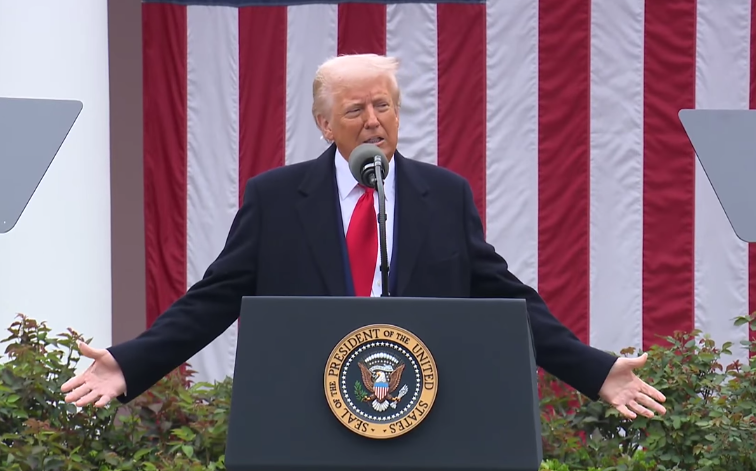The United States reported that it will take a 90-day pause to the global trade war that President Donald Trump initiated on April 2 when he announced his policy of reciprocal tariffs.
Trump reported that the pause will apply to countries that did not respond with retaliatory tariffs against U.S. products.
Prominent among these countries by far is China, to whom the U.S. will raise the cumulative base tariff from 104% to 125%, Trump stated.
“I have authorized a 90-day PAUSE and a substantial reciprocal tariff reduction during this period of 10 percent, also effective immediately. Thank you for your attention!” said Trump.
Global trade war
The U.S. president’s response came on the heels of China’s announcement of an 84 percent retaliatory tariff on U.S. goods, and after the European Union received authorization to slap tariffs of nearly 21 billion euros.
Trump justified a tariff pause by pointing out that more than 75 countries have requested to negotiate with the United States.
In 2024, U.S. exports of goods to the Chinese market were $143.546 billion.
Conversely, China’s product sales to the U.S. market totaled $462.639 billion.
China will apply a new 50 percent tariff on U.S. imports starting Thursday. This is in addition to the 34% already charged at customs, bringing the total rate to 84 percent.
An eye for an eye
The move comes in response to a cumulative 104% tariff that the U.S. imposed as of this Wednesday on all Chinese imports. This new order by President Trump is part of his “reciprocal tariffs” policy. In response, China’s Ministry of Finance announced the new 50% tariff and called the U.S. actions a “mistake on top of another mistake” that violates China’s legitimate rights.
Background: in 2018, the U.S. found that China engaged in practices such as forced technology transfer, cyber theft of intellectual property, and state-backed procurement. This was part of an investigation under Section 301 of the Trade Act of 1974.
In response, tariffs were imposed on $370 billion worth of Chinese goods. China reacted with levies on $110 billion in U.S. goods. Since then, the two countries have escalated their trade war with new measures.

